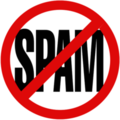How To Choose A Domain Name |
Domain names are fast becoming as important to a business as their trading name, company name and trademarks. In this issue of Sunburnt Tech Tips, we explain what a domain name is, how the Domain Name System works and how you can find a good domain name for you business from an ever shrinking pool.
How To Choose A Domain NameIt's All in the Name
Domain names have been perhaps the mostly widely commoditized electronic resource since the explosion of the Internet in the 90's - but what exactly is a domain name? Who owns them, and who decides how they can be used?
The Domain Name System (DNS)
The purpose of a domain name is to resolve a human-friendly name such as www.sunburnt.com.au to a numeric, machine-usable Internet address such as 202.4.237.139. This is all done by the Internet's Domain Name System (DNS).
DNS defines names hierarchically, such that the responsibility for managing and resolving names can be delegated down the chain. For example, ICANN, who are responsible for the root domain (and therefore the entire Internet) delegate the .au domain space to be managed by auDA. auDA then create the .com.au domain space and license registrars to sell names in this space. When somebody registers a domain name (say sunburnt.com.au), they can manage it however they like (e.g. by adding the subdomains www.sunburnt.com.au or not.real.sunburnt.com.au).
Usually, when you register a domain name, your registrar sets up DNS hosting so that your domain name resolves to your website and/or mail servers.
Cybersquatting and Typosquatting
As a virtual commodity, domain names exist in almost unlimited abundance and can be registered quite inexpensively. Cybersquatters and typosquatters make a living from registering domain names with the intent to generate income from selling the traffic produced by these names, or selling the name itself for a (much) greater amount. Sometimes they have alterior motives, such as spreading malicious software or slandering a company or individual.
Cybersquatters usually try to register business or trademarked names ahead of the company or persons who most likely should own the name. Typosquatters register variants of a domain name that are often entered as a result of a spelling or typing error (e.g. goggle.com, wikipedi.com). With over one billion Internet users worldwide, some of these 'false' domains generate a lot of valuable traffic.
Tips for Choosing a Domain Name
- Take what you can get. Finding a good domain name is very difficult and the chances are you won't be able to get the exact name you want. Make a list of what names are available and just choose the best one(s).
- Exhaust your alternatives. Here are some useful strategies for coming up with permutations of your name:
- Refer to a dictionary or thesaurus to find alternative words for your name.
- Use trendy spelling (e.g. digg.com, vodafone.com.au, orbitz.com).
- Prepend or postpend numbers (e.g. gecko26.com).
- Prepend 'the', 'my', 'e', or 'i' (e.g. thepeloton.com.au, ebay.com, iplanet.com).
- Prepend or postpend related words (e.g. thelakehousemovie.com, carsonline.com.au).
- Use an abbreviation (e.g tkcm.com, mlynch.com.au).
- Keep it short. Short names are preferrable because they take less time to type, fit more easily on your marketing publications and are generally easier to remember.
- Make it easy to say.
- If possible, avoid hyphenating your domain name as it adds an extra two syllables when spoken.
- Test the name over the phone. Some sound combinations aren't always easily distinguished on the phone (e.g. the sounds made by th, f and s).
- Consider the languages demographics of your audience. For example, English speakers might have difficulty with French names, and vice versa.
- Make it easy to read.
- Avoid joining words with matching letters between words (e.g. zooonline.com)
- Beware of making new words when you join them. For example, the "Experts Exchange" site was originally www.expertsexchange.com (oops!).
- Consider using InterCaps when presenting your domain name if it is confusing when written in all lowercase letters (e.g. AnandTech.com)
- Make it easy to remember. It is likely that you will think your domain name is easy to remember, but you should always get several second opinions before you are convinced!
- Protect your name. Cybersquatting and Typosquatting is rife online. If you have a high traffic site you should seriously consider registering common mispellings or similar versions of your domain name. This will always be cheaper than going through a Domain Name Dispute process.
- Back-order the names you couldn't get. There are several online companies, such as SnapNames.com, which specialise in registering domain names as soon as they become available. You might be able to get the name you wanted through their services if the existing owner does not renew it.

